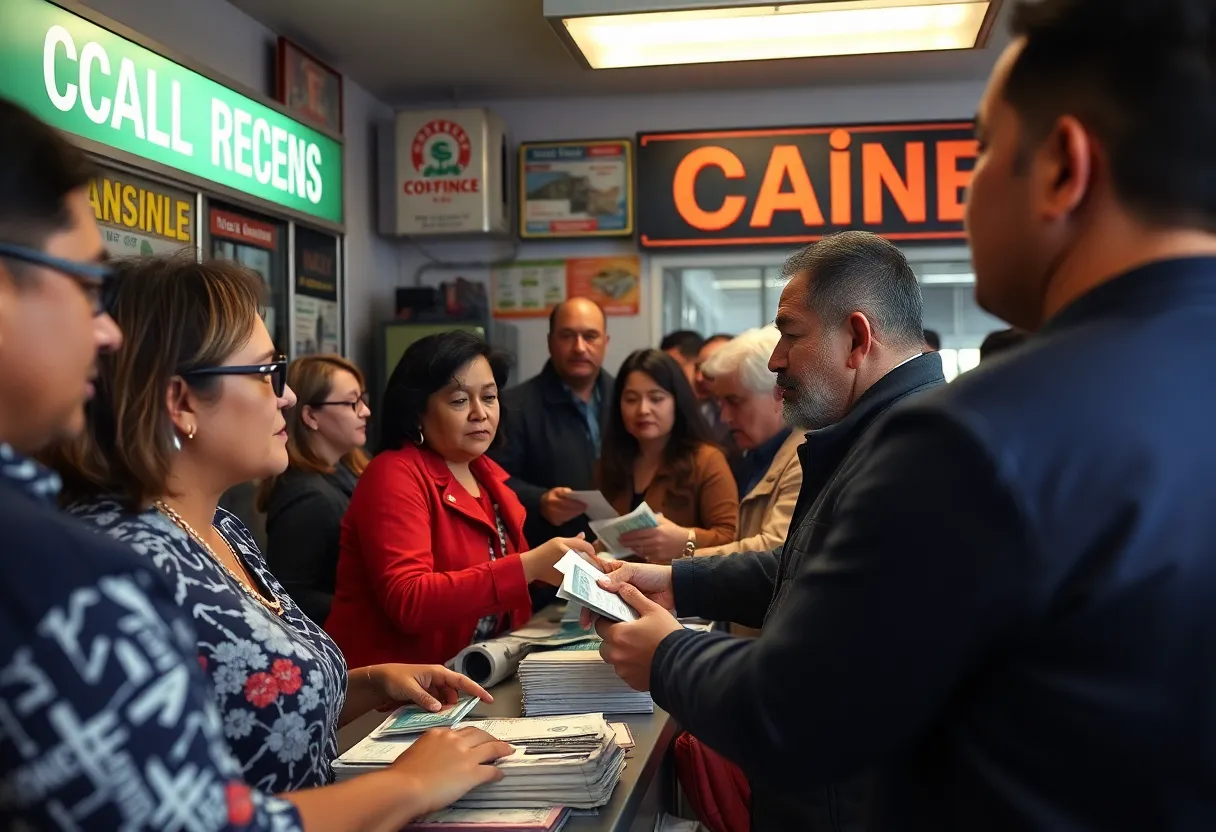News Summary
A federal judge in California has suspended a cash reporting requirement imposed on businesses along the Mexican border, aimed at combating money laundering linked to drug cartels. U.S. District Judge Janis Sammartino’s ruling has brought relief to small money service providers in San Diego and Imperial Counties, who experienced a significant decline in customer volume due to the rule. The enforcement of this requirement had raised concerns about its legality and potential burdens on companies. Legal challenges focus on the balance between law enforcement and the operational needs of small businesses.
California – A federal judge has ordered the suspension of a controversial cash reporting requirement for businesses along the Mexican border in Southern California. U.S. District Judge Janis Sammartino issued this ruling in San Diego, halting the enforcement of a requirement that mandated check cashers and currency exchangers to report cash transactions exceeding $200.
This ruling specifically affects businesses in San Diego and Imperial Counties, where the requirement was initially imposed by the Treasury Department’s Financial Crimes Enforcement Network (FinCEN) in March. The intention of the rule was to combat money laundering and financial activities linked to Mexican drug cartels by uncovering suspicious transactions.
Under the now-suspended rule, businesses in 30 ZIP codes across Texas and California were required to report these financial transactions, which placed substantial burdens on the day-to-day operations of smaller money service providers. Esperanza Gomez, owner of a money transfer business in San Diego, filed a lawsuit in April after experiencing a drastic decline in customer volume during the week the rule was enforced. Gomez reported a drop of between 50% to 60% in customer traffic, creating significant financial strain on her business.
The enforcement of this rule had notable repercussions. Major financial service providers, like Western Union, ceased cash transfers exceeding $200 due to apprehensions surrounding the requirement. Gomez’s legal team is involved in parallel litigation in Texas, where another judge has ruled in favor of stopping enforcement of the rule for ten small money service businesses involved in a similar lawsuit.
Attorney Robert Johnson, representing Gomez and other plaintiffs, emphasized the detrimental impact of the rule. He underlined that the government’s documentation consists of hundreds of pages lacking substantial evidence showing the specific financial activities the rule aimed to target. Johnson further contended that the $200 threshold represents an unconstitutional general warrant under the Fourth Amendment, placing an unreasonable expectation on businesses to surveil their customers without just cause.
In its defense, the federal government has argued that the rule is a legitimate measure tailored to focus on a 180-day period in particular high-activity ZIP codes prone to money laundering and trafficking issues. Katherine Parker, an attorney with the Department of Justice, acknowledged the potential for harm caused by the enforcement of the rule but defended its purpose as essential in combating financial crimes.
Judge Sammartino’s decision to suspend the enforcement of the rule stems from identified inconsistencies in the government’s documentation and evidence regarding the legitimacy of the requirements. This ruling has brought relief to the affected businesses in Southern California, who have been struggling to comply with a regulation they believe unfairly targets them while failing to provide adequate evidence of financial wrongdoing in their operations.
The legal challenges surrounding the cash reporting requirement highlight larger issues about the balance between law enforcement objectives and the operational realities of small businesses relying on customer transactions. As the legal proceedings continue, the outcome may have lasting implications not only for businesses in Southern California but also for financial service operations across the border region.
Deeper Dive: News & Info About This Topic
- Courthouse News
- Wikipedia: Border Security
- Texas Border Business
- Google Search: California Border Business Regulations
- MSN News
- Encyclopedia Britannica: Money Laundering
- Texas Border Business on Tariffs
- Google News: Money Transfers California

Author: STAFF HERE MISSION VIEJO WRITER
The MISSION VIEJO STAFF WRITER represents the experienced team at HEREMissionViejo.com, your go-to source for actionable local news and information in Mission Viejo, Orange County, and beyond. Specializing in "news you can use," we cover essential topics like product reviews for personal and business needs, local business directories, politics, real estate trends, neighborhood insights, and state news affecting the area—with deep expertise drawn from years of dedicated reporting and strong community input, including local press releases and business updates. We deliver top reporting on high-value events such as Oso Fit 5K Fun Run and Community Health Fair, Walk Against Drugs & Community Fair, and National Night Out. Our coverage extends to key organizations like the Mission Viejo Chamber of Commerce and Providence Mission Hospital Mission Viejo, plus leading businesses in retail and education that power the local economy such as The Shops at Mission Viejo, Capistrano Unified School District, and Amazon Delivery Station. As part of the broader HERE network, including HEREAnaheim.com, HEREBeverlyHills.com, HERECostaMesa.com, HERECoronado.com, HEREHollywood.com, HEREHuntingtonBeach.com, HERELongBeach.com, HERELosAngeles.com, HERESanDiego.com, and HERESantaAna.com, we provide comprehensive, credible insights into California's dynamic landscape.


